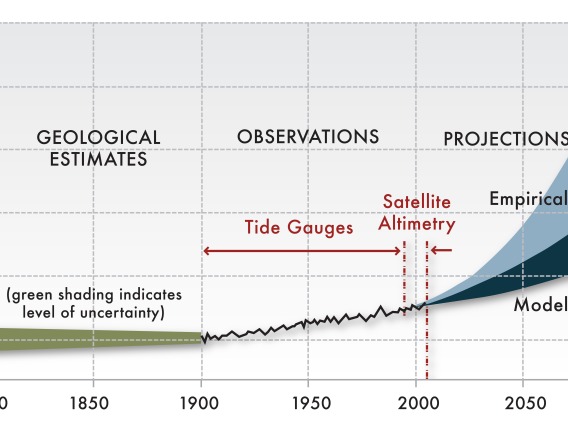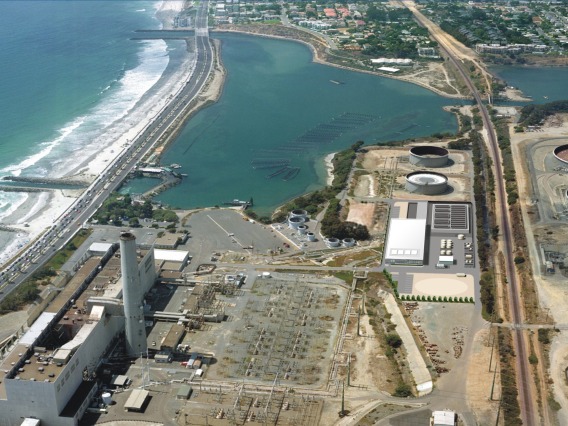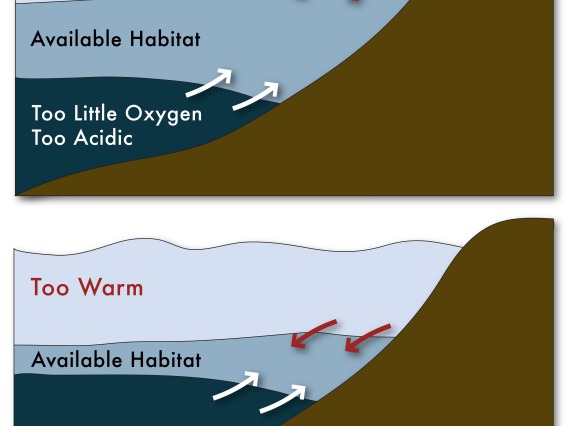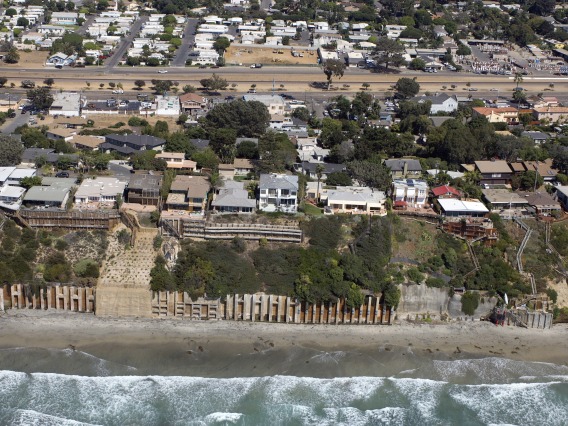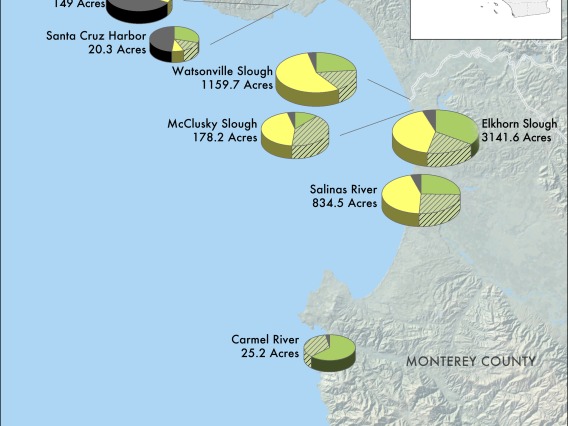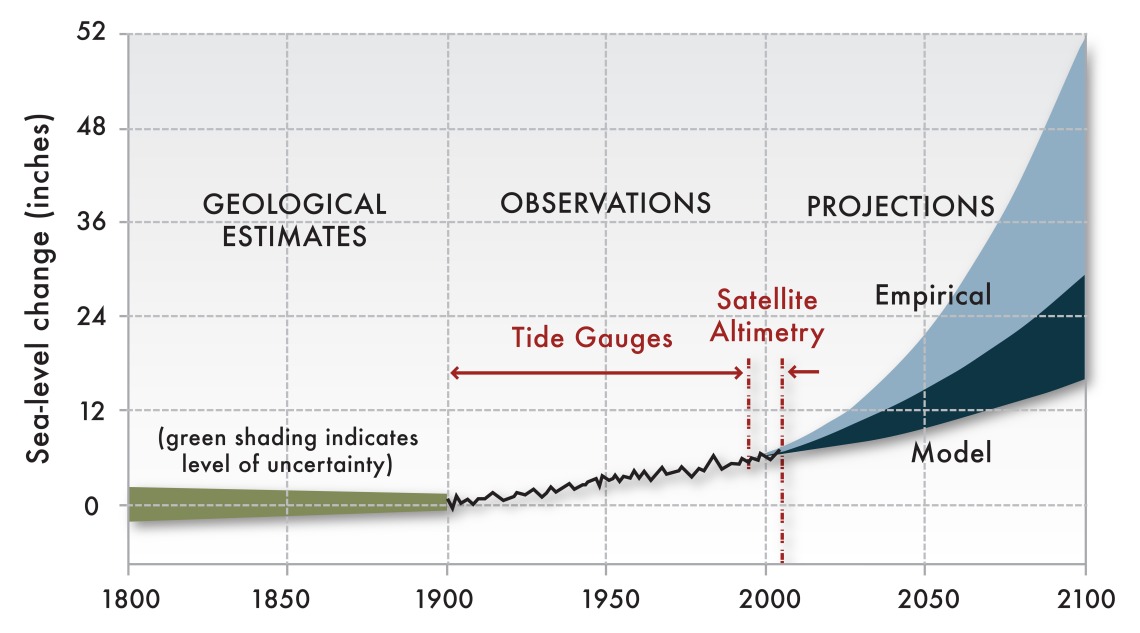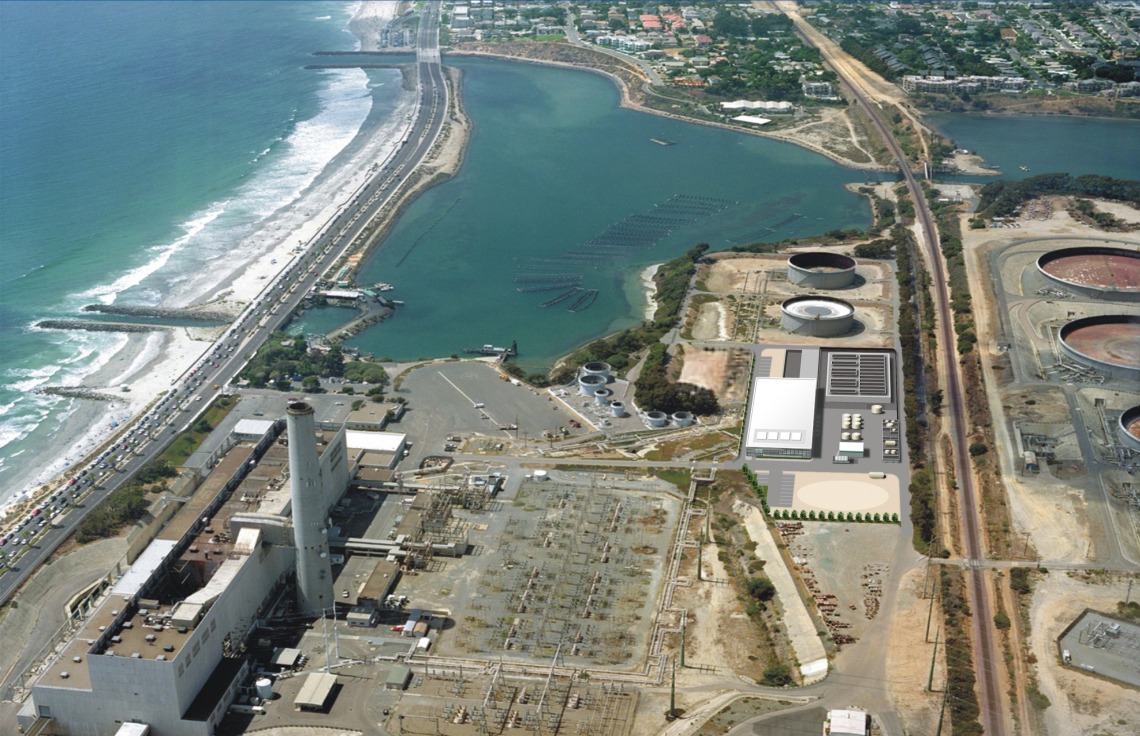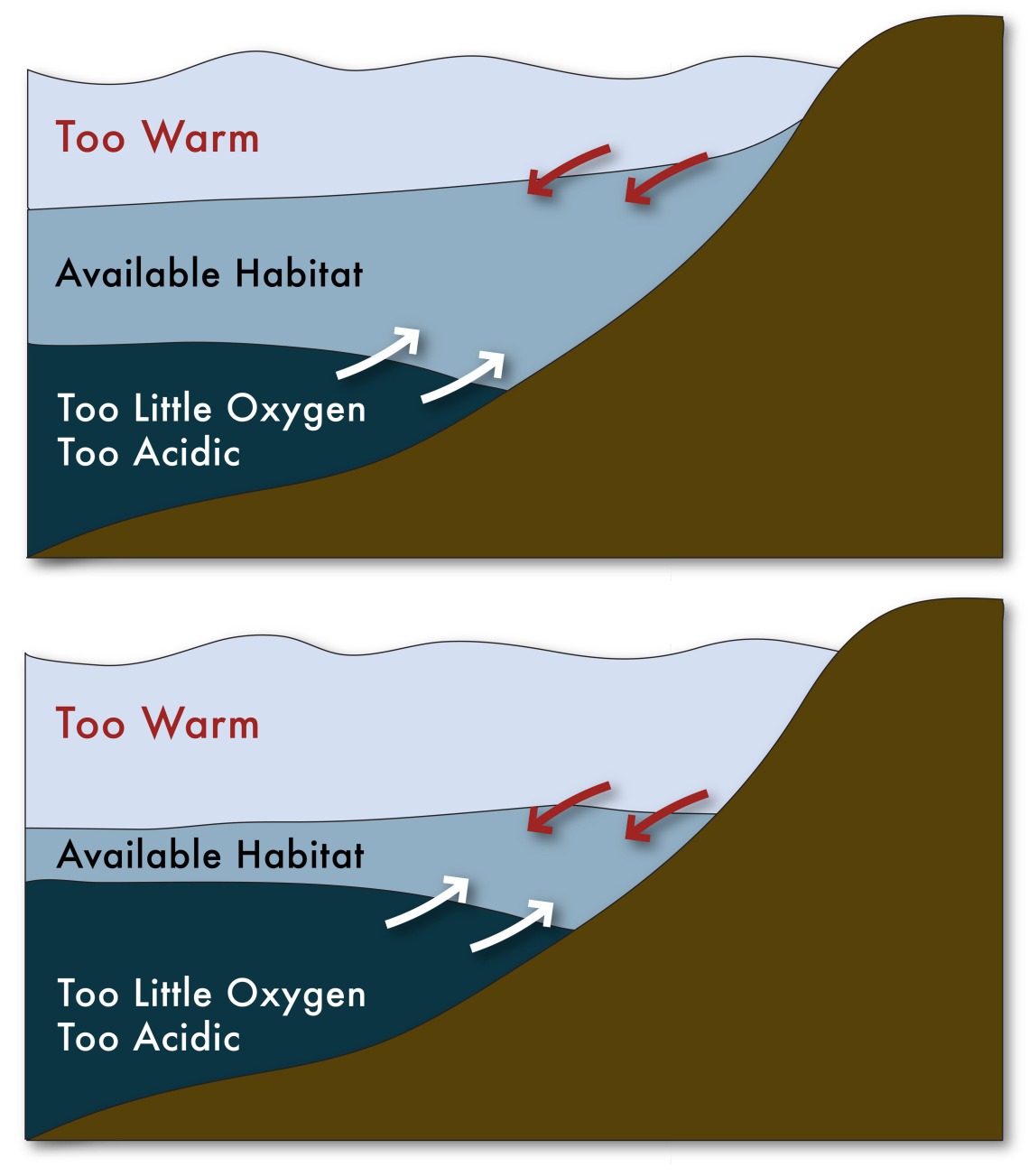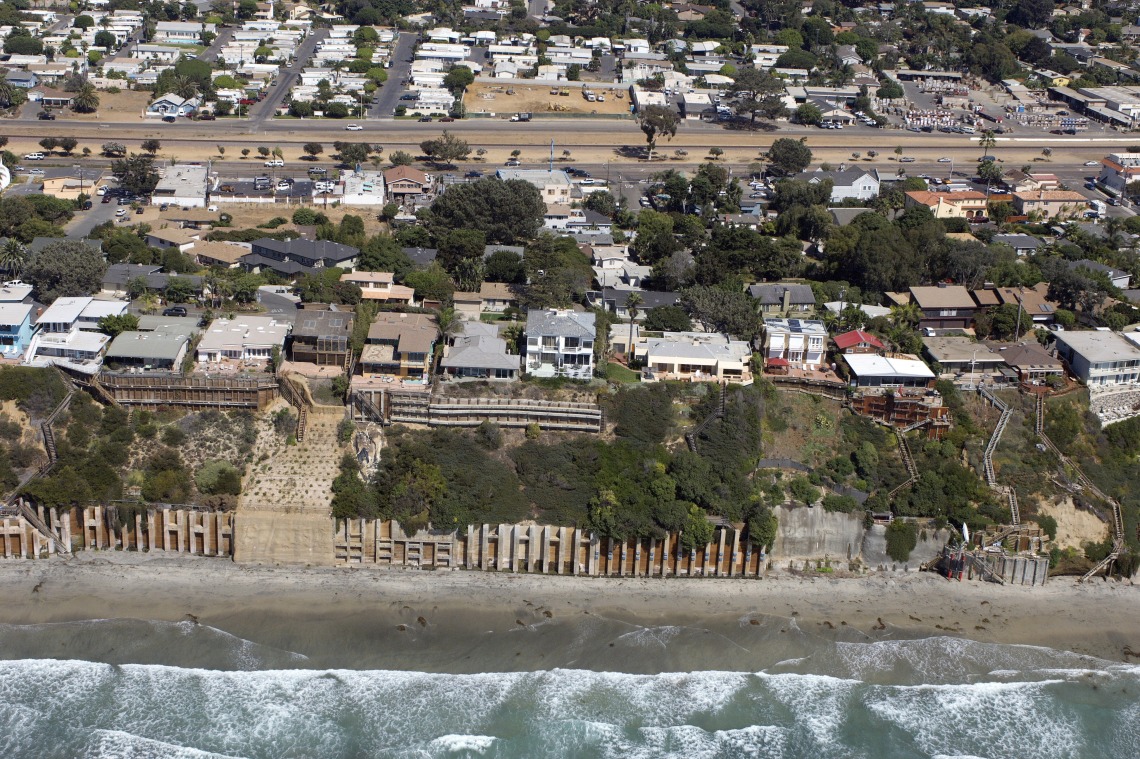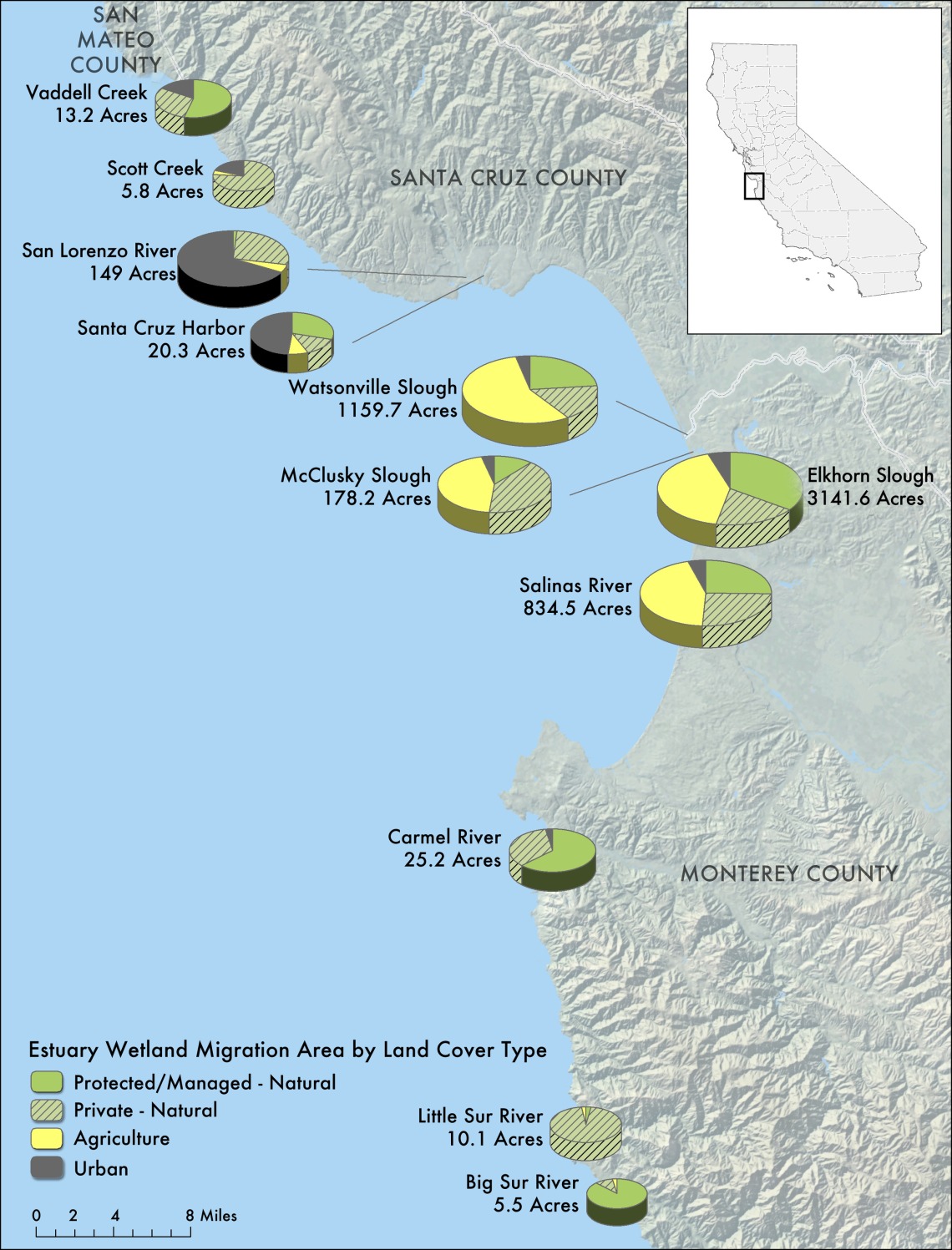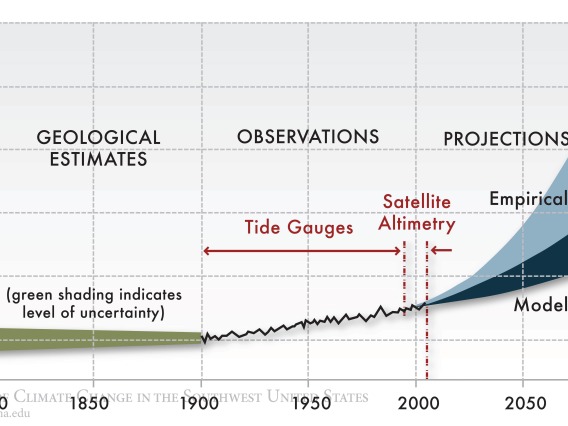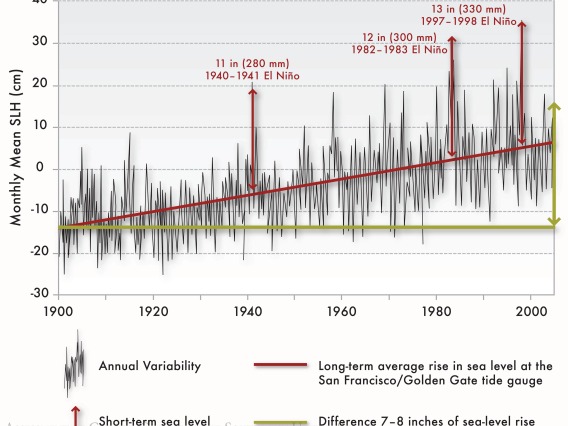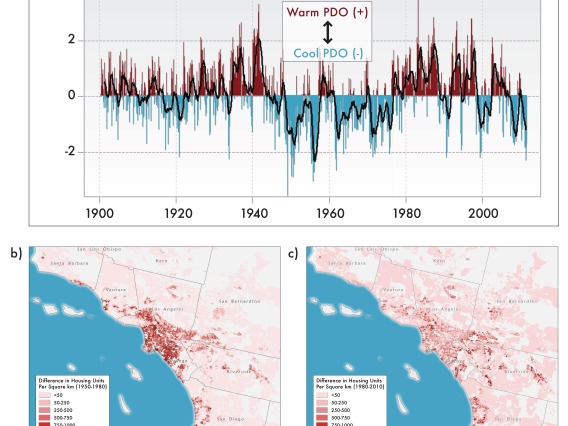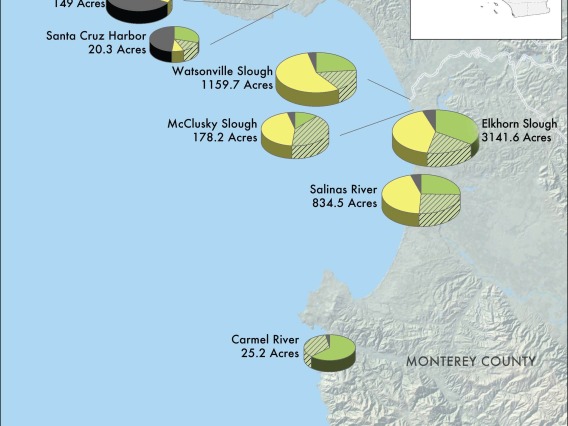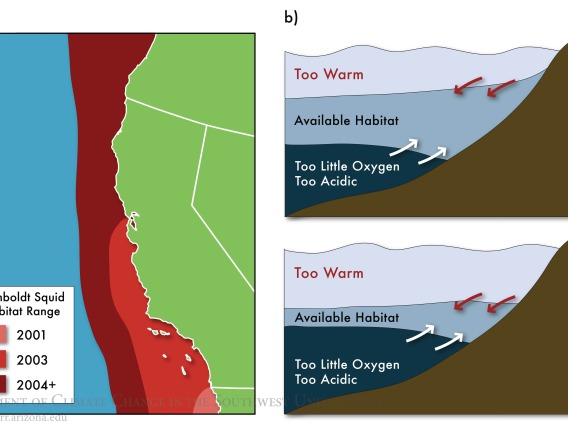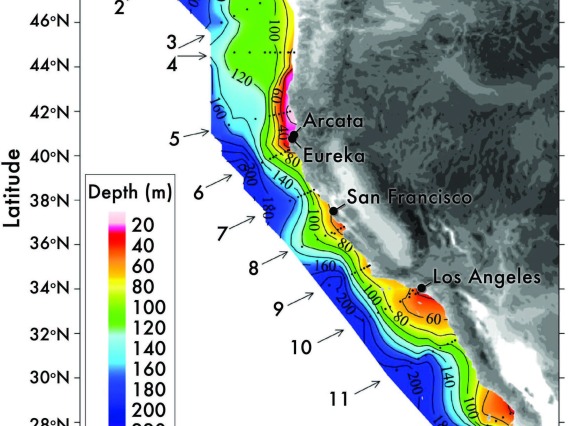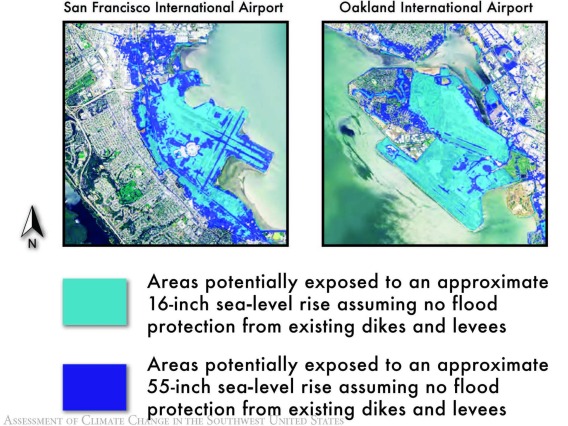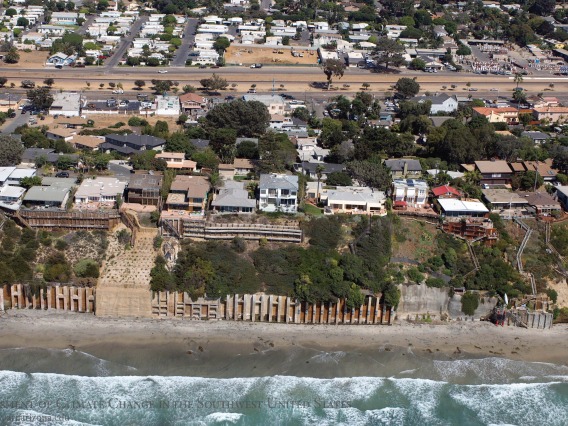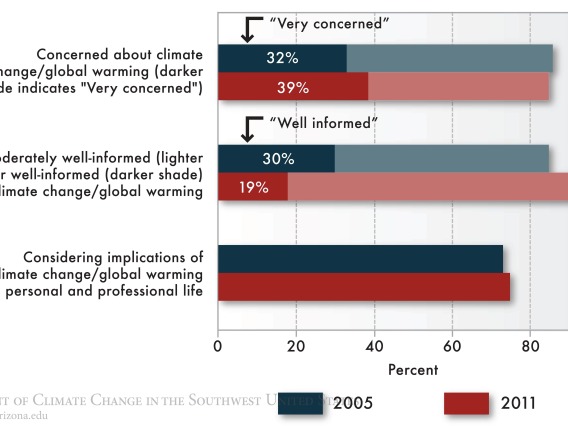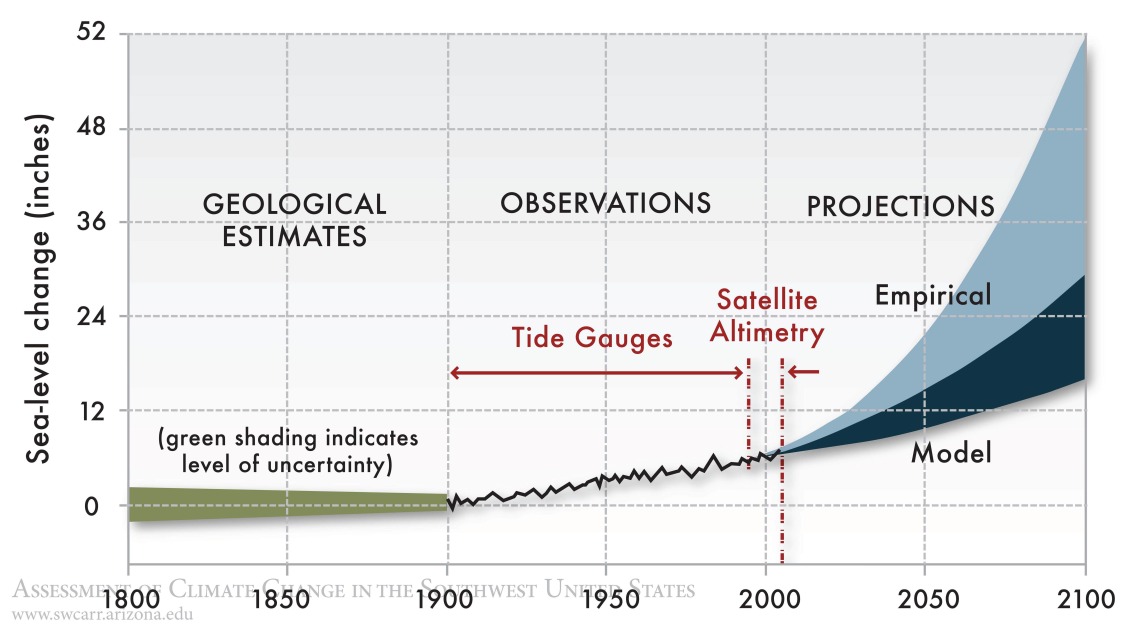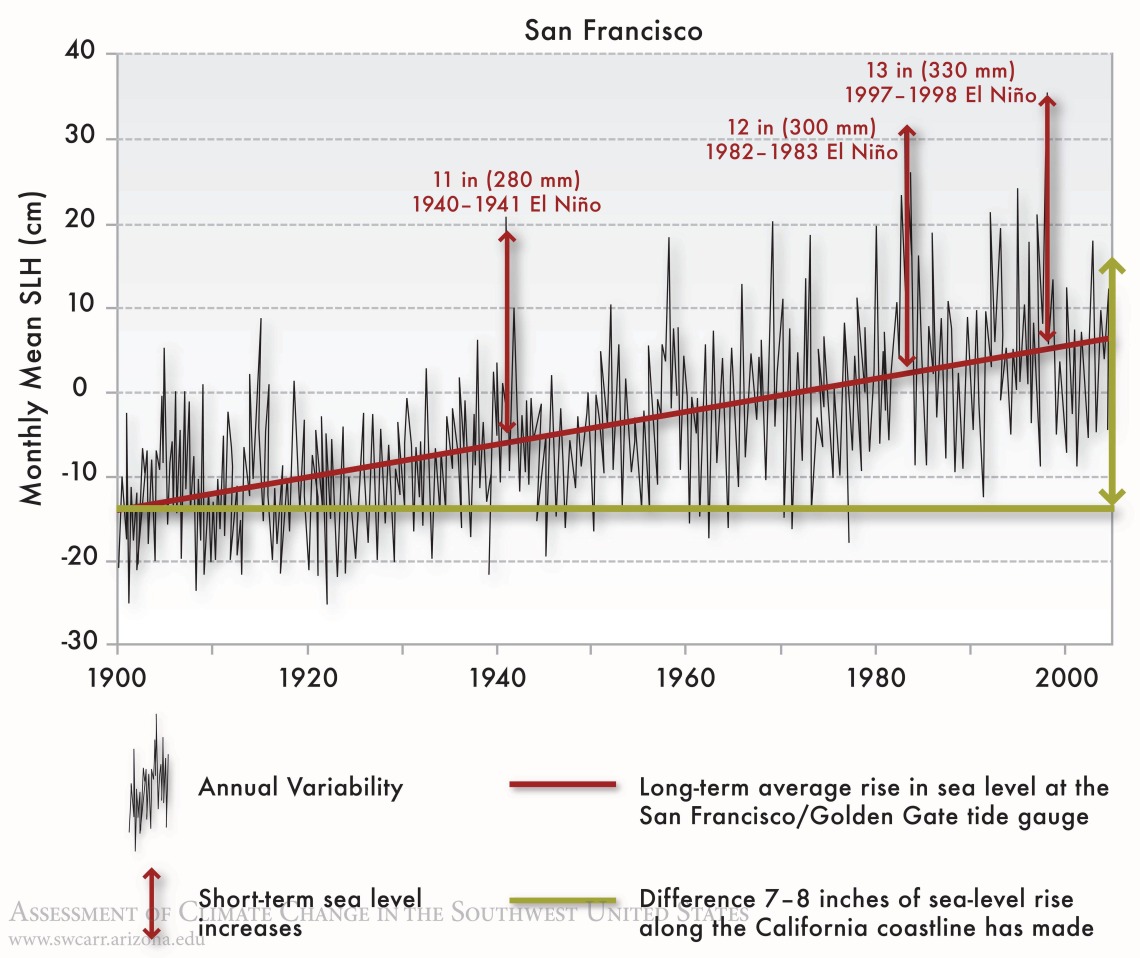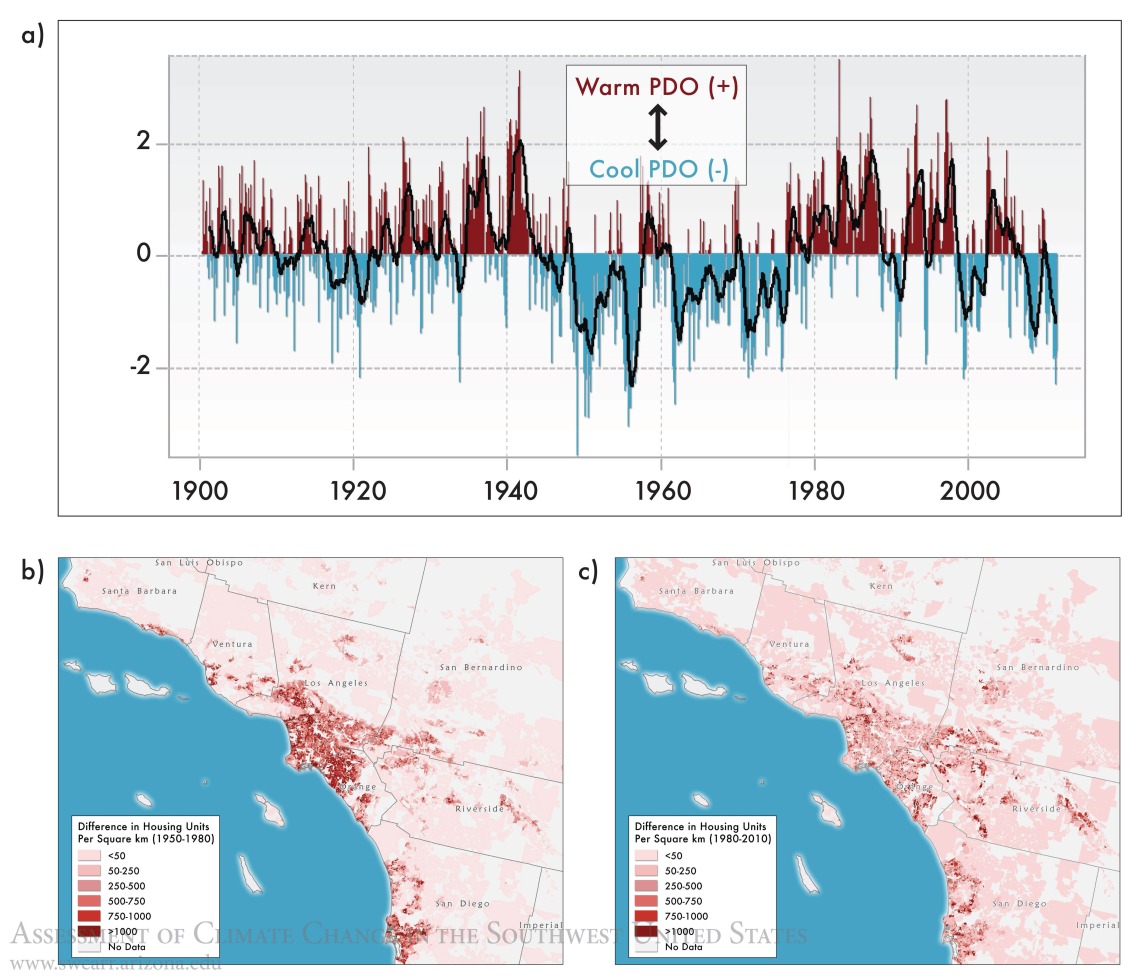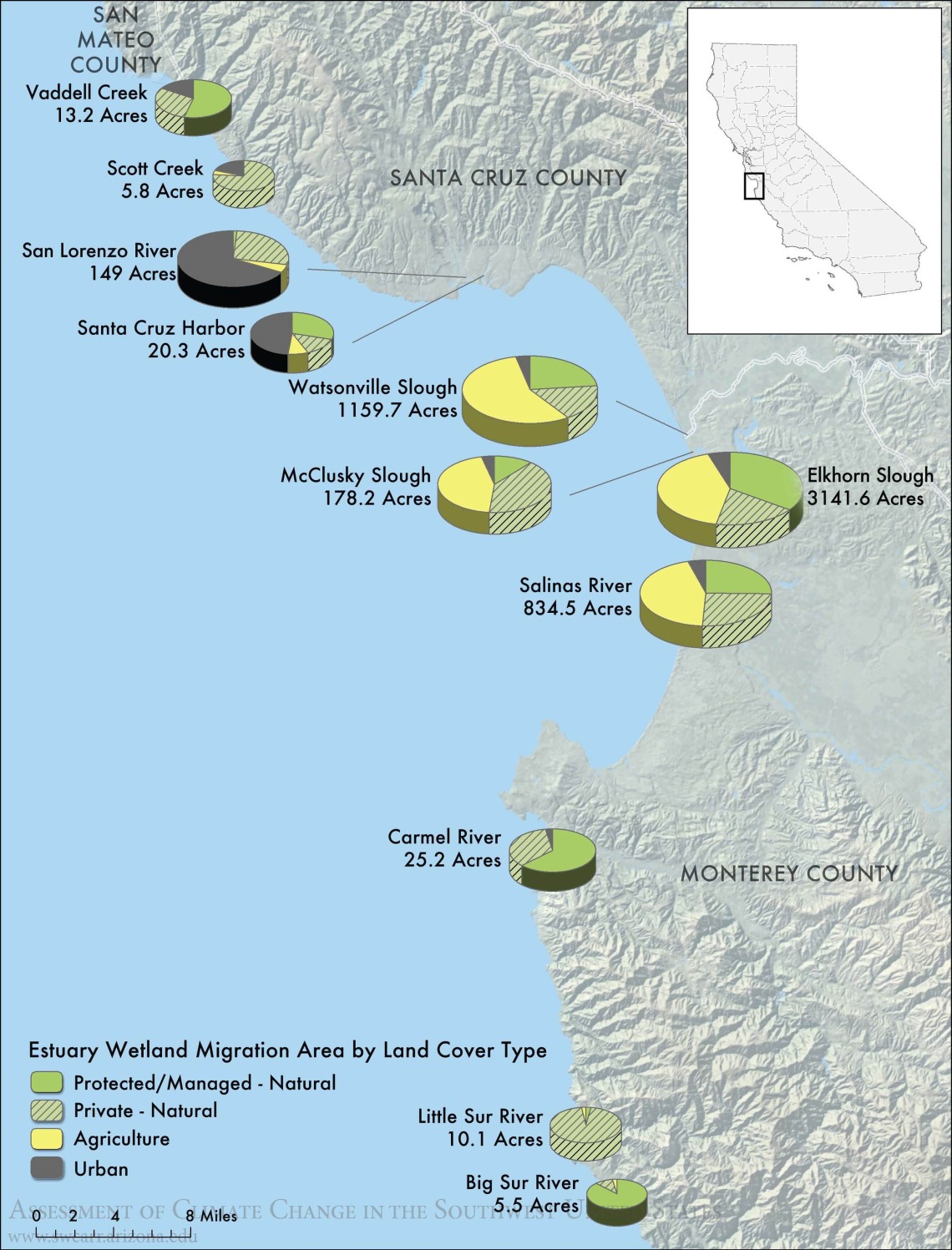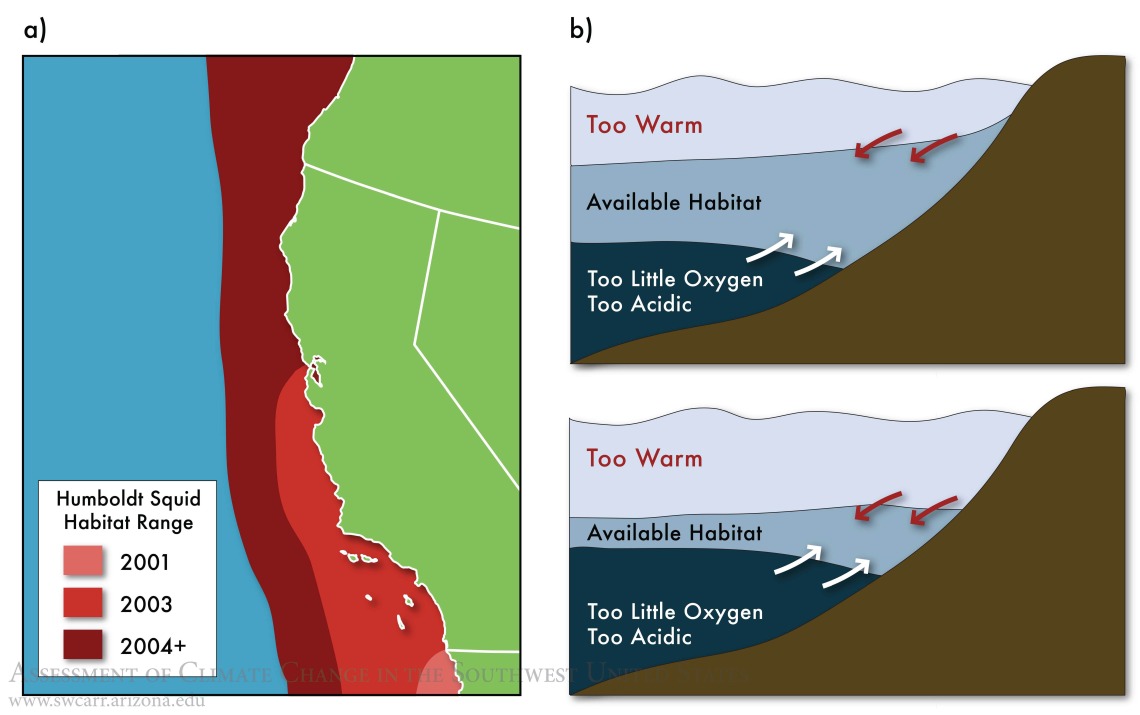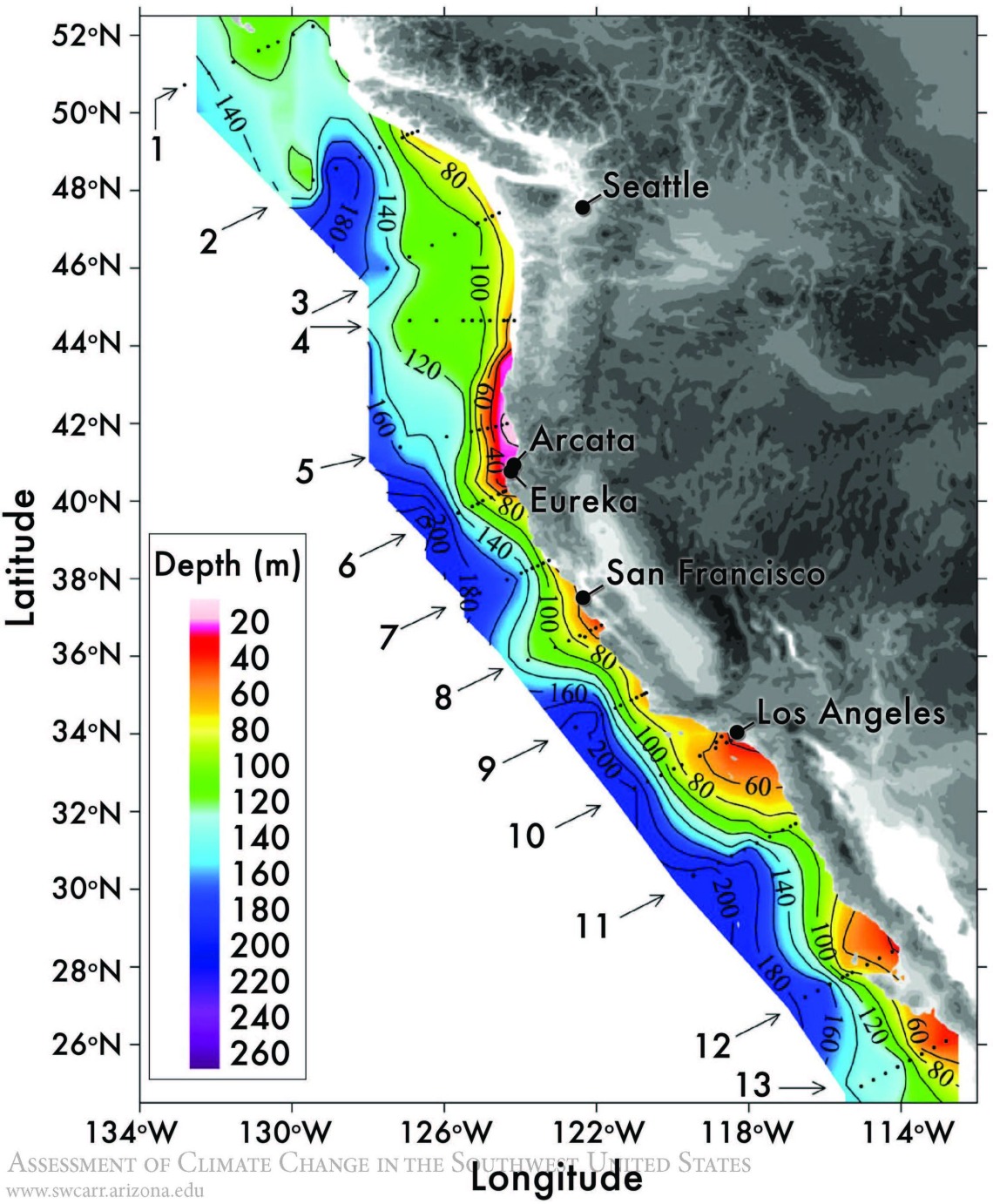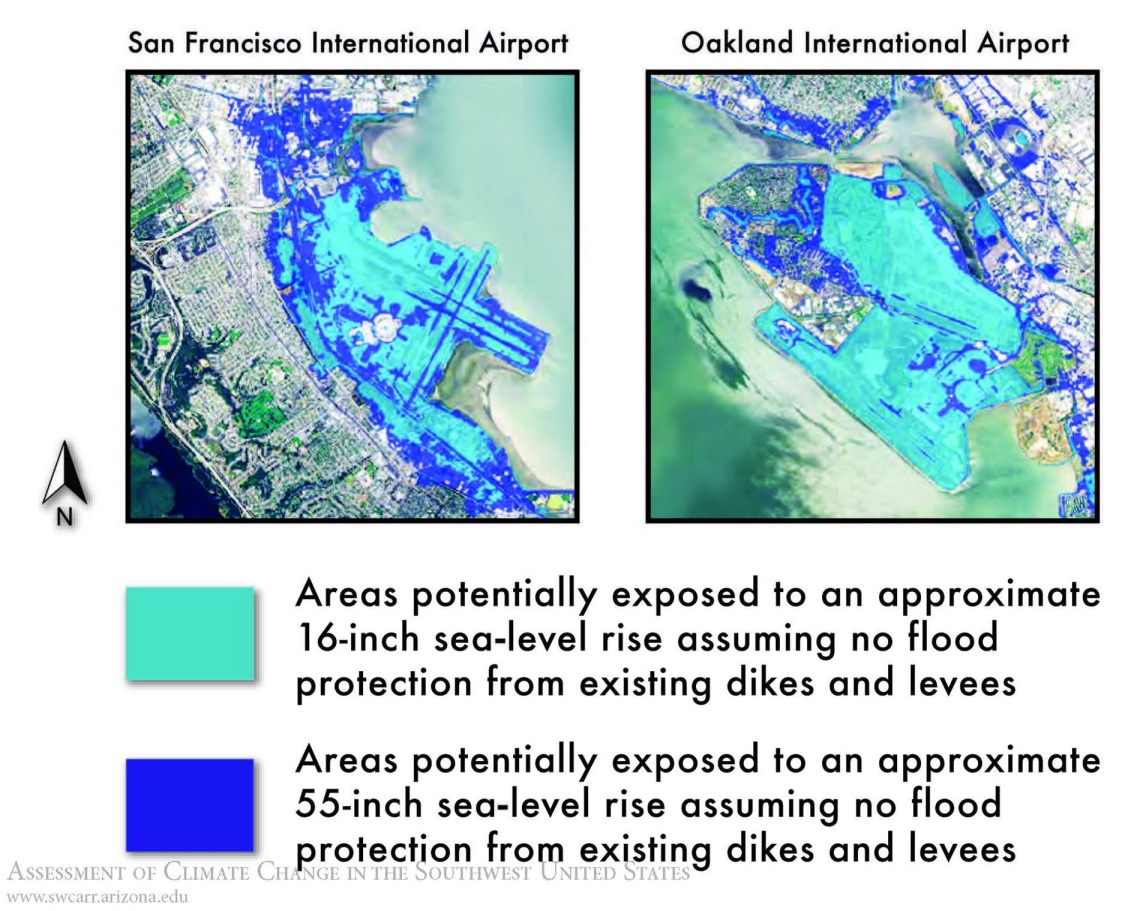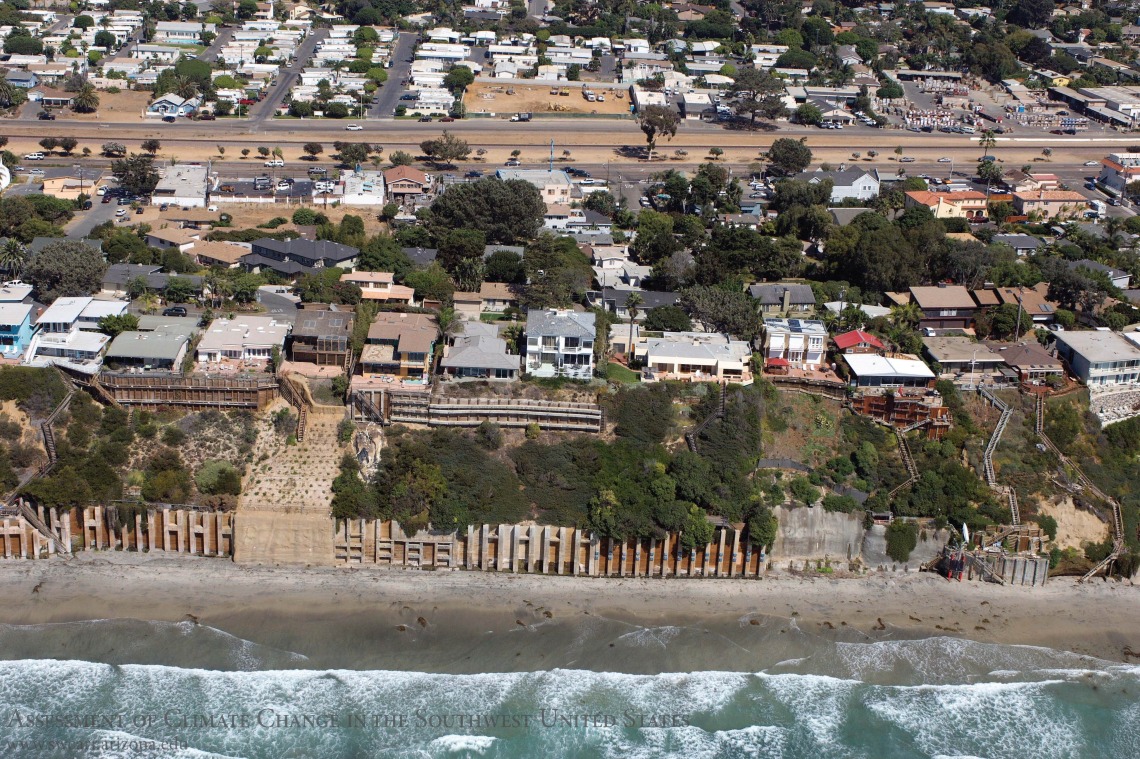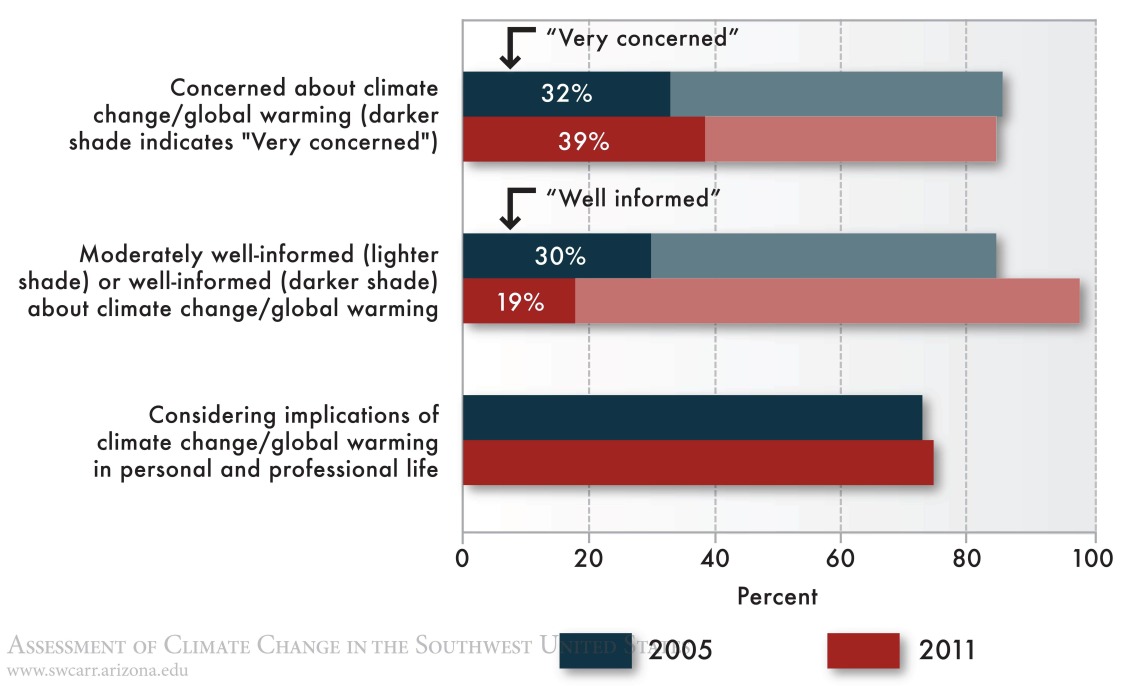Coastal Issues looks at how climate change might affect coastal areas—via sea-level rise, erosion, storm surges, and oceanographic changes (nutrient upwelling, acidification, or oxygen depletion)—and discusses potential management options, such as infrastructure changes, insurance incentives, land-use restrictions, and other means to reduce climate-related vulnerabilities and impacts.
Citation:
Caldwell, M. R., E. H. Hartge, L. C. Ewing, G. Griggs, R. P. Kelly, S. C. Moser, S. G. Newkirk, R. A. Smyth, and C. B. Woodson. 2013. “Coastal Issues.” In Assessment of Climate Change in the Southwest United States: A Report Prepared for the National Climate Assessment, edited by G. Garfin, A. Jardine, R. Merideth, M. Black, and S. LeRoy, 168–196. A report by the Southwest Climate Alliance. Washington, DC: Island Press.
Margaret R. Caldwell (Stanford Woods Institute for the Environment, Stanford Law School)
Eric H. Hartge (Stanford Woods Institute for the Environment)
Lesley C. Ewing (California Coastal Commission)
Gary Griggs (University of California, Santa Cruz)
Ryan P. Kelly (Stanford Woods Institute for the Environment)
Susanne C. Moser (Susanne Moser Research and Consulting, Stanford University)
Sarah G. Newkirk (The Nature Conservancy, California)
Rebecca A. Smyth (NOAA, Coastal Services Center)
C. Brock Woodson (Stanford Woods Institute for the Environment)

